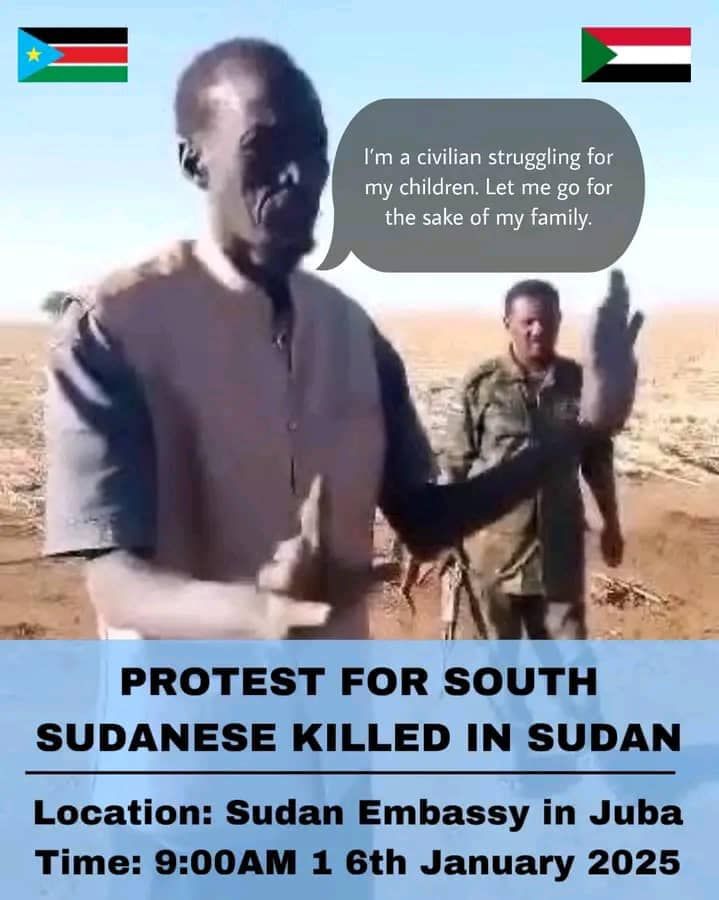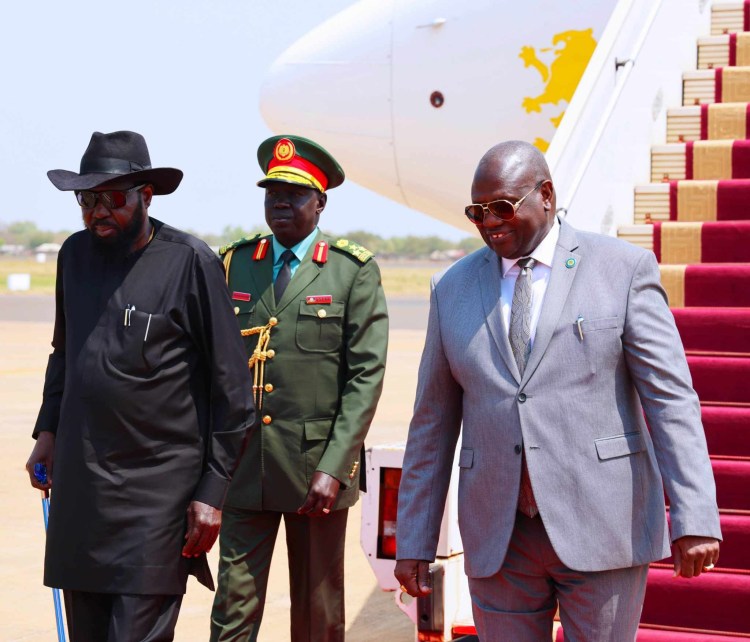On January 14, a horrifying massacre unfolded in Khartoum Bahri and Wed Medani, where Sudanese government forces, alongside their brutal killing machines-special jihadist militias -unleashed a wave of terror on South Sudanese civilians. These jihadist fighters, notorious for their extreme brutality and
Dehumanizing practices specialized in slaughtering victims while invoking God and labeling them infidels. Over 200 innocent civilians, including young people, children, women, and elders, were killed in Khartoum Bahri alone.
This article sheds light on the atrocities. Committed in these regions, focusing on systematic targeting, methods of violence, and the ideological justification employed by the perpetrators.
The Massacre in Khartoum Bahri
On January 14, the city of Khartoum Bahri became the epicenter of a gruesome massacre, Armed Sudanese government forces, supported by special jihadist militias, launched a coordinated attack on South Sudanese civilians living in the area.
1. Indiscriminate Killing of Innocents
The victims, numbering over 200, included young people, children, women, and elders. These civilians, unarmed and posing no threat, were subjected to unspeakable violence. Survivors recounted horrific scenes of execution-style killings, where jihadist fighters used knives, machetes, and firearms to slaughter their victims.
2. Dehumanization and Religious Justification The special jihadist militias employed by the
Sudanese government played a central role in the massacre. These fighters, notorious for their ruthless methods, called on God as they carried out their killings, referring to their victims as infidels. This ideological justification not only dehumanized the victims but also incited further violence, as the perpetrators framed their actions as a form of religious duty.
3. Targeting the Vulnerable The killings in Khartoum Bahri targeted the most vulnerable members of society. Women and children were among the primary victims, with many slaughtered in front of their families. Elderly individuals, unable to escape, were mercilessly killed alongside younger civilians.
Atrocities in Wed Medani
While Khartoum Bahri experienced one of the deadliest massacres, similar atrocities occurred in Wed Medani, government forces, and their jihadist allies carried out attacks on South Sudanese civilians, employing the same brutal tactics witnessed in Bahri
1. Ethnic and Ideological Targeting
The violence in Wed Medani, like in Khartoum Bahri, was fueled by ethnic hatred and religious. Extremism. South Sudanese civilians were singled out as targets, with the perpetrators:
Labeling them as infidels and justifying their killings through twisted religious rhetoric.
2. Systematic Slaughter
The attacks in Wed Medani mirrored those in Bahri in their methodical nature. Civilians were rounded up and killed in groups, with jihadist fighters chanting religious slogans as they carried out their gruesome acts. The use of such tactics created an atmosphere of terror, leaving survivors deeply traumatized.
The Role of the Special Jihadist Militias
The involvement of special jihadist militias in the massacres is a chilling aspect of these atrocities. These groups, armed and enabled by the Sudanese government, are infamous for
Their brutality and ideological zeal.
1. Methods of Violence
The jihadist militias are known for their particularly gruesome methods of killing, which often involve beheadings, throat-slitting, and other forms of slaughter. These methods are intended to instill fear and assert dominance over their victims.
2. Religious Zealotry
By invoking God and labeling their victims as infidels, the jihadist militias not only. Dehumanized their targets but also sought to justify their actions as a form of divine retribution. This perverse interpretation of religion fueled their brutality and encouraged the systematic targeting of South Sudanese civilians
3. Government Support and Impunity The actions of these jihadist militias were carried out with the full support and backing of Sudanese government forces. This collaboration underscores the government’s
Role in enabling and perpetuating the violence, as well as its disregard for the lives and rights of South Sudanese nationals.
The Human Toll
The massacres in Khartoum Bahri and Wed Medani have left a devastating human toll. Over 200 lives were lost in Bahri alone, with additional casualties in Wed Medani. Families have been shattered, with entire generations wiped out in a single day.
1. Loss of Innocent Lives The victims of these massacres were civilians
-unarmed and defenseless individuals who
Had no means of protecting themselves. Among them were children, whose lives were cut short before they had a chance to fully begin, and elders whose wisdom and experience were silenced forever.
2. Psychological Trauma
Survivors of the massacres are left to grapple with profound trauma. Many witnessed the killings of their loved ones, and the memory of the violence continues to haunt them. For
These individuals, the physical scars of the attacks, are matched only by the emotional and psychological wounds they now carry
3. Displacement and Insecurity The massacres have forced many South Sudanese civilians to flee their homes in search of safety. However, the ongoing threat of violence leaves them with few places to turn, as government forces and jihadist militias continue to target their communities.
The Call for Justice
The massacres in Khartoum Bahri and Wed Medani demand immediate action and accountability.
1. Accountability for Perpetrators The Sudanese government and its jihadist militias must be held accountable for their actions. Independent investigations are needed to identify and prosecute those responsible for the killings, including those who provided
Support and directives for the attacks.
2. Protection for Vulnerable Communities The international community must intervene to protect South Sudanese civilians in Sudan. This includes deploying peacekeeping forces, providing humanitarian assistance, and
Pressuring the Sudanese government to end its campaign of violence.
3. Support for Survivors
Survivors of the massacres require urgent assistance, including medical care, psychological support, and legal advocacy. The South Sudanese government, along with international organizations, must work to address the needs of these individuals and ensure their safety and well-being.
Conclusion
The massacres in Khartoum Bahri and Wed Medani on January 14 represent a horrific chapter in the persecution of South Sudanese
Civilians in Sudan. The involvement of Sudanese government forces and their jihadist killing machines highlights the deliberate and systematic nature of the violence.
The international community can not remain silent in the face of such atrocities. Justice for the victims and protection for the survivors are essential steps toward ending the cycle of violence and ensuring that such tragedies are never repeated. Only by holding the perpetrators accountable and providing support to those affected can we begin to heal the wounds inflicted by this senseless brutality.


What did the government do so far about these people suffering in the north.